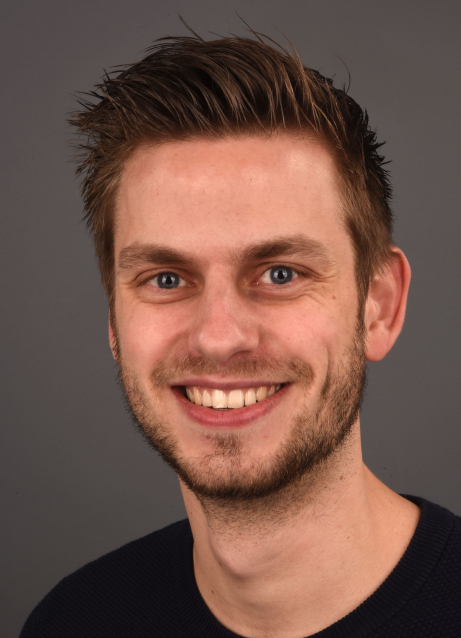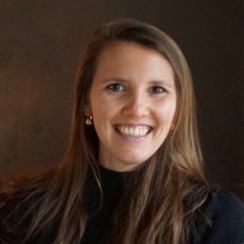Large-scale development programme on measurement in healthcare to launch
With the approval of the Limburg Provincial Council, the project Limburg Meet (LIME) – a large-scale development programme in the area of measurement in healthcare – began on Monday, 11 July. Measurement plays an essential role in the transition to a new healthcare system. With new and improved measurement methods, expensive care for people with chronic illnesses can be transferred from the hospital to primary care or even to the people at home. Additionally, these smart measurement methods can prevent chronic conditions and reduce unnecessary measurements in healthcare.
Expertise
The project takes place in Limburg because there is more ageing and chronic illness in this province than elsewhere. There has also been a great deal of prior collaboration in Limburg in the area of measurement in healthcare. LIME is considered groundbreaking in the Netherlands and will be carried out by Zuyd University of Applied Sciences – coordinator of the project – in collaboration with Maastricht University and with support from the Limburg Provincial Council. What makes the programme special is that many SMEs are on board.
‘It's important that within Limburg Meet, over 30 businesses, healthcare facilities and knowledge institutes are now collaborating with citizens on the healthcare of tomorrow,’ says Sandra Beurskens, one of LIME's two project leaders, lector at Zuyd University of Applied Sciences and professor at Maastricht University in the area of measurement in healthcare. ‘We expect this figure to increase.’
Paul Borm, LIME's other project leader and lector in Life Sciences at Zuyd University of Applied Sciences, explains: ‘LIME is about connections, and the connections we make are extremely important. LIME seeks to achieve concrete breakthroughs, so it's crucial to have cooperation between all parties in the healthcare chain and ensure access for new ideas and parties.’
Provincial Executive of Labour and Welfare, Marleen van Rijnsbergen believes that LIME clearly contributes to the objectives of the Limburg Provincial Council's Social Agenda. ‘LIME can support the social structure enhancement movement in Limburg by improving the health of Limburg's residents and strengthening the opportunities to actively participate in society.’
Provincial Executive of Economy and Knowledge Infrastructure, Twan Beurskens adds: ‘LIME affects various Brightlands campuses and not only enriches knowledge and expertise in healthcare, but also creates more jobs and makes a structural contribution to Limburg's economy.’
Unacceptable regulatory and registration-related burdens
A great deal of measurement is currently performed in healthcare, for example by doctors and care providers, in order to understand the health status of patients and the care provided. The reality, however, is that many measurements are irrelevant or carried out in a manner that is too fragmented. Over the years, measurement has become a goal. Because of this, healthcare providers as well as patients experience unacceptable regulatory and registration-related burdens, and sometimes face ethical issues surrounding the choice of registering or caring for the patient. Accordingly, healthcare professionals also want smarter measurement in order to be able to spend more time on providing care, while those patients needing less intensive care or none at all will have more control and autonomy.
Concrete breakthroughs
One of LIME's key features is that it will bring together expertise from healthcare facilities, end users, the business community and knowledge institutes in order to create improved products and processes to be developed and applied in practice. This includes the further development and improved implementation of all types of new wearables – portable devices – with new technological sensors. With this approach, diagnosis and care can be moved from the hospital to the general practitioner, or even to people at home, thus keeping healthcare affordable and accessible. In this respect, LIME serves as a link between parties and brings existing initiatives together.
Limburg Knowledge Axis
Limburg Meet is one of the eleven so-called Limburg Knowledge Axis projects aimed at stimulating Limburg's economy and strengthening the province socially. The goal is to maintain the vitality of the population while ensuring that healthcare remains affordable and accessible. Limburg Meet is a project that will run for at least eight years and cost over €28.3 million in total. Of this amount, the province is responsible for €6 million, but for the time being the project's partners have made a four-year commitment and the province's contribution is now roughly €3.5 million. Regarding the financing of the remaining balance (€2.5 million), the Limburg Parliament will make a ruling in four years. Zuyd University of Applied Sciences and Maastricht University are making equal investments in LIME, both in cash and in the form of existing resources.
This is a joint press release of Zuyd Hogeschool, Universiteit Maastricht en Provincie Limburg.
Also read
-
Patients admitted to hospital due to a severe COVID-19 infection exhibit no evidence of brain damage caused by the disease. This is the conclusion of an extensive study led by Maastricht University.
-
Due to the Western lifestyle with a high fat diet combined with little exercise, more and more people in the Netherlands are overweight or even obese. This causes an increased risk of type II diabetes. What can be done about this besides a healthier lifestyle? The answer comes from an unexpected...
-
Survivors of colon cancer often have symptoms associated with the cancer or treatment for years after treatment, such as fatigue and tingling in fingers and feet. This has a great impact on the perceived quality of life. Whereas current lifestyle advice is mainly aimed at prevention of (colon)...


